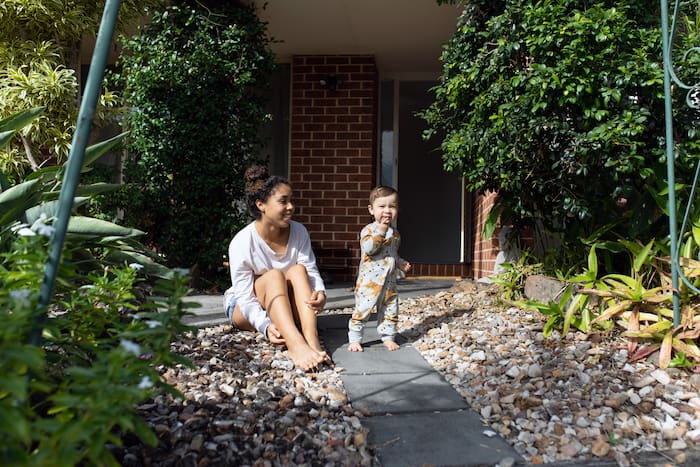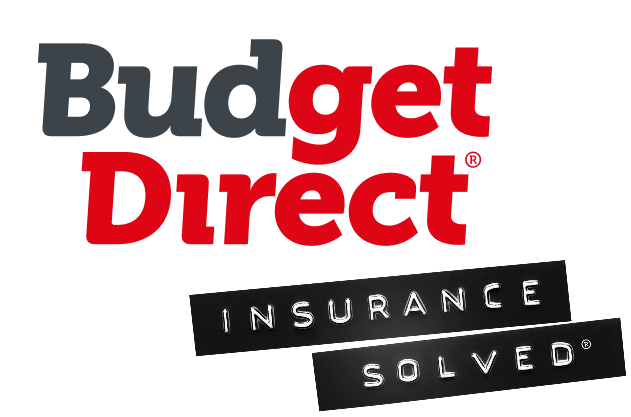Buying a house can be such an exciting time in your life, and for many of us, it can be one of the biggest purchases we’ll ever make.
Whether you're looking for an investment property or that special place to call home - buying a property is a significant financial commitment and there's a lot to consider.
If you're unsure where to start, this step by step guide can help you understand what's involved in the buying process, and identify potential red flags along the way.
Find out what you need to know when you start the exciting process of buying a house in Australia.
Finance Checks
Finance will be one of the biggest factors to consider when buying a house. From saving up for a deposit to applying for the right loan with the right lender, it helps to know what's involved from the get-go.
Home Deposit
A home loan deposit is an initial contribution to the purchase price of a house. It secures ownership of part of the property, while the lender covers the rest. This helps you purchase a property with less than you have saved, and you can pay it back over time.
It’s generally recommended you save around 20% of the purchase price of a house for the deposit, however, some big lenders will offer loans with as little as 5% or even 2% under certain schemes. If you can afford it, it benefits to have a higher percentage deposit to begin with as it can mean lower mortgage repayments and less long term debt.
Whether you opt for a fixed-rate loan or a variable interest rate will depend on your circumstances.
A fixed interest rate means you lock in the same interest rate for typically one to five years. With a variable rate - the interest you pay will be based on the price set by the Reserve Bank of Australia, which can fluctuate based on economic factors.
If this is your first home purchase, you may also be eligible for certain benefits under the First Home Owner Grant. The scheme varies depending on which Australian state or territory you’re purchasing in so it’s important to do your research beforehand.
There are also other schemes available such as the Home Guarantee Scheme and Family Home Guarantee if you’re looking for more support options when buying a home.
Loans and Pre-Approval
Once you’ve reached your target savings goal, you may want to speak to a mortgage broker as they can offer a good understanding of the wider housing market. A mortgage broker can also act as a go-between when dealing with banks or other lenders when you apply for a home loan.
If you're ready to start making offers, you can apply for pre-approval. This is an indication from a bank or another approved financial institution as to how much you can borrow.
Be aware, pre-approval is not a guarantee you have the home loan but it can give you more confidence in your borrowing power.
When you apply for pre-approval, a lender will be assessing your application based on factors such as:
Income and assets
Job stability
Spending habits
Credit history
Investments and shares
Having all your documentation ready when you apply for pre-approval will make for a smoother process— paperwork such as bank statements, pay slips, proof of identity and assets and liabilities.
Lenders also like to have an idea of what kind of property you're looking for, so providing a 'property wish list' with your application can be beneficial.
Home loan pre-approvals are typically valid for around three to six months so you may want to hold off until you're ready to make an offer. If you don't secure a property in the time that pre-approval lasts, you can re-apply with the same or a different lender.
But, be mindful to minimise the amount of times you do this as it can affect your credit score.
Additional Costs
There are also other upfront costs associated with a property purchase. To avoid any nasty surprises, budget for additional expenses such as:
Stamp duty
Conveyancing and solicitor fees
Disbursements or inquiries (for example, property title search fees)
Building and pest inspection
Local council rates
Land tax (depending on your circumstances)
Strata fees (if relevant)
Home and contents insurance
A conveyancer or solicitor will guide you through the necessary due diligence and advise on any issues along the way. Some of the costs you pay now, like building inspections, can save you a lot of money and hassle in the future.
Market Instability
One potential red flag for home buyers is market instability. Fluctuations in the market can cause doubt and uncertainty so it's important to keep up-to-date with market trends and speak to a trusted financial advisor about your unique situation.
Property Search

Now that you're more confident with your finances, it's the perfect time to step up your property search.
Whether you're scouring online listings or attending viewings with real estate agents, this is your opportunity to bring your dream property into focus.
As you inspect different properties, it's important to keep a critical eye, and not let your excitement override your judgement. Look out for any structural defects or cracks - even a fresh coat of paint may have been used as a cover-up, so stay vigilant!
Take notice of the property's smell. Does it smell musty? This could indicate problems with moisture and ventilation. It's better to ask as many questions as you can now, before making a big financial commitment.
Property Type

When looking for your property, it can be a good idea to ask yourself the right questions.
What type of property are you in the market for? A house to rent out to tenants, or a home to live in? An apartment or a house? Off-the-plan or an established home?
Investment Property
When purchasing an investment property, put yourself in the shoes of a prospective tenant. What will be appealing for them? Things like proximity to schools, public transport and other local amenities like shops and restaurants, are likely to attract more interest.
Also, what sort of features do you want to secure? For instance, garage space and additional bathrooms can add to your property's growth potential.
Apartment or House?

There are pros and cons to buying a house versus an apartment. For instance, while a house generally requires more maintenance, an apartment may incur additional costs like strata fees.
Your decision depends a lot on your lifestyle, your price range and how much space you need. As a single person or a couple, you might consider an apartment as they tend to be more affordable and there's less space to clean.
If you have a young family, the extra space of a house may come in handy. Plus, you’re able to renovate more freely than if you owned an apartment where you often need special permission from a body corporate to make changes.
Off-The-Plan or an Existing Home?

With many new housing developments underway in Australia, it could pay to purchase an off-the-plan property, meaning it's not yet been built.
This can sometimes be more affordable than buying an existing home due to certain concessions and incentives available for off-the-plan purchases. In some cases, stamp duty costs may be reduced or waived provided you fit key criteria.
There can also be the potential for custom variations and bespoke designs which are more easily added in the building phase rather than after completion.
However, it's essential to research the reputation of the builder/developer. Look for any red flags in their track record like building delays or dodgy workmanship, and always consult with a property lawyer before signing any off-the-plan contracts.
Location

Your property's location will have a huge impact on both your quality of life and the property's value. When purchasing a home to live in, consider your work/life balance, local community, amenities and the general vibe of the neighbourhood.
Visit the area multiple times and at different times of the day if you can. Research the property's growth potential by looking up pricing trends and crime rates. Scope out street noise and traffic conditions and find out if there are any big upcoming developments planned.
Finding your ideal location can come by word of mouth, exploring new suburbs, or speaking to real estate agents. A free app like Boomscore can also provide additional insights on things like capital growth rates, median property prices, and areas where housing is likely to 'boom.'
The Buying Process
You've found a place you love, now you want to lock it in! Whether you're going through a private sale or gearing up for an auction, there are some important differences in the buying process.
Private Sale
Firstly, you can put in a request for a contract of sale and this is usually done through a real estate agent.
It's recommended you get a solicitor to review the terms and conditions of the contract and then you can prepare your written offer with special conditions.
These conditions will include the price you're willing to pay, settlement date and terms, as well as other provisions like the length of cooling-off period. This is a timeframe in which you can complete pest and building inspections, as well as get your finances fully approved.
A cooling-off period also allows you to pull out of the contract if something goes wrong, for example, if the pest or building inspection results are unsatisfactory. During this time, you have grounds to withdraw from the sale, however, you may need to pay a termination penalty.
Auction
Before the auction, you can ask the seller's agent how to make an offer. Usually, you can make a verbal or written offer and if it's accepted, the seller's agent will formalise the letter into a contract of sale.
As with a private sale, it's highly advised you get a solicitor to review this document.
With an auction process, some of the stakes are higher compared to a private sale. For one, there is no cooling-off period. If you are the highest bidder, you'll need to settle the contract, regardless of whether or not:
The house passes its inspections
You change your mind
Finances come through
Ensure you have done your due diligence before bidding on a property, and a conveyancer or solicitor will help you check all the boxes, including:
Property valuation (make sure you conduct an independent valuation, not relying on any appraisals made by the seller's real estate agent)
Flood report
Pest and building inspection
Auction registration
If your bid is successful, the deposit for the home will be due immediately or shortly after the auction and the settlement date agreed upon in the contract. At this point, the property belongs to you, provided the seller's reserve price (the minimum sale price the seller will accept) has been reached.
Home and Contents Insurance

Now you have your property secured, you'll want to protect what's most valuable.
Having the right home and contents insurance coverage means your new investment is protected from day one.
Depending on which state or territory you're in, the insurance requirements for owning a home may change. For instance in Queensland, once contracts are signed you'll be responsible for insuring the property from 5pm the next business day.
It's recommended you seek legal advice from a conveyancer or solicitor as they can provide you with guidance on when you should take out home insurance on the property you are purchasing.
Learn more about Budget Direct Home Insurance and how you can cover your new property in case of the unexpected.






